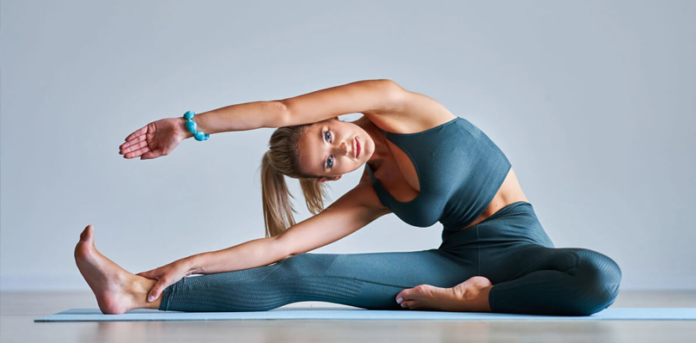Yoga is an ancient technique that has achieved huge popularity worldwide due to its multiple physical, mental, and spiritual benefits. However, like any other widely practiced discipline, this technique is not immune to misconceptions and myths. These misconceptions can sometimes discourage individuals from exploring yoga or hinder their progress within their practice.
Common Yoga Myths And Misconceptions
It is Only for the Flexible
One of the most widespread misconceptions about that it is reserved for those who are already flexible. While flexibility can certainly be beneficial, it is not a prerequisite. Yoga is about gradually working with your body to increase flexibility, strength, and balance over time.
Yoga is Just Stretching
Although this technique involves a significant amount of stretching, it is far more than just that. It is a multifaceted practice that combines physical postures (asanas), breath control (pranayama), meditation, and mindfulness. It engages the body, mind, and spirit, aiming to create harmony and balance within the individual.
It is Only for Women
While yoga classes often have a higher percentage of female participants, it is not gender-exclusive. Both men and women can benefit greatly from practicing it. In fact, it has numerous benefits for men, including increased flexibility, improved strength, stress reduction, and better posture.
It’s Easy and Not a Real Workout
Yoga may appear gentle to those who haven’t tried it, but it can be incredibly challenging. Different styles such as Vinyasa or Power Yoga, can provide a vigorous cardiovascular workout and help build muscular strength. Holding certain poses requires significant muscle engagement and endurance, leading to a well-rounded and effective workout.
It is Just for Relaxation
While this practice can certainly promote relaxation and stress reduction, it offers much more than that. It can also challenge your body, improve your balance and coordination, increase your body awareness, and promote mental clarity and focus.
FAQs
Is yoga only for flexible people?
No, it is not exclusively for flexible individuals. While flexibility can improve with consistent practice, it is about gradual progression and self-awareness. Many poses can be modified to suit different flexibility levels, and over time, it can help improve flexibility, strength, and balance for practitioners of all abilities.
Is yoga a sufficient workout on its own?
Yes, it can be a comprehensive workout. While some styles are more gentle and meditative, others, like Vinyasa or Power Yoga, provide vigorous physical activity that enhances cardiovascular fitness and muscular strength. It combines strength, flexibility, balance, and mindfulness, making it a well-rounded form of exercise for both body and mind.
What is the best time to practice Yoga?
The best time to practice yoga depends on your personal preferences and schedule. Morning and evening are common choices, with morning practice helping to energize you for the day, and evening practice aiding relaxation. Ultimately, consistency matters more than the specific time of day.

